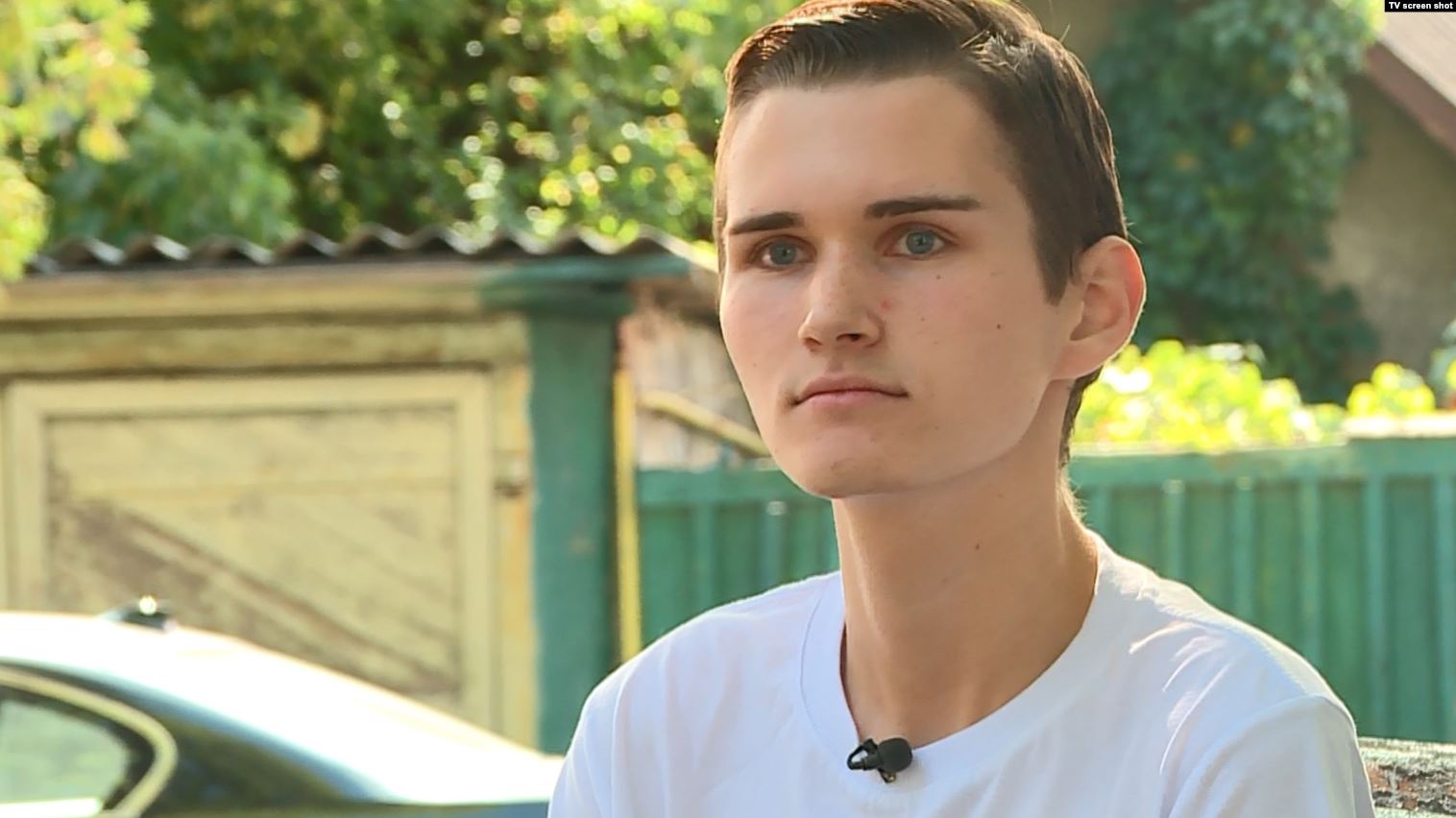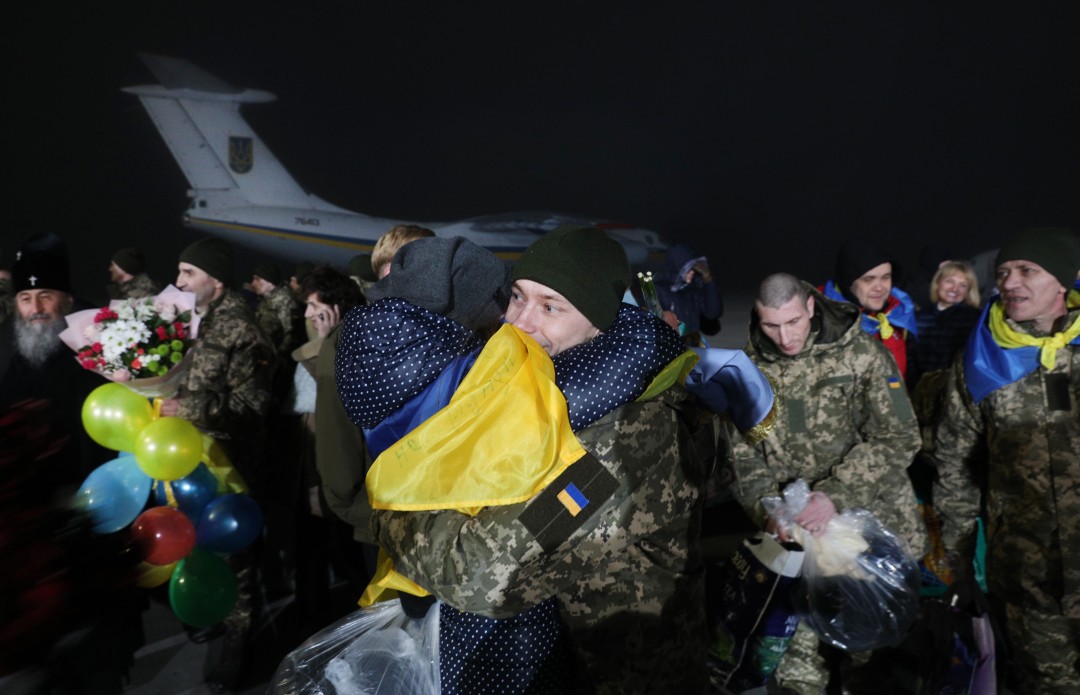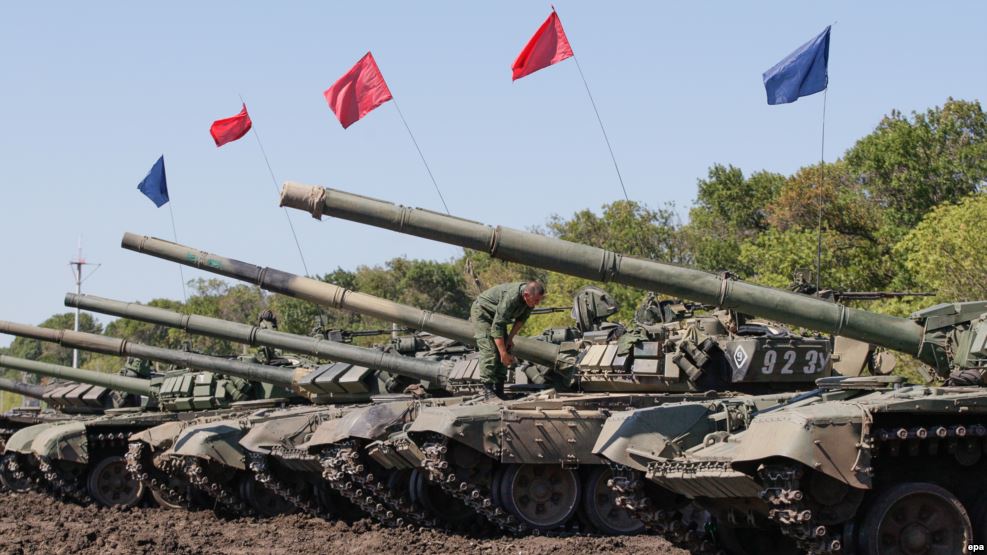Kyrylo Samozdra is 18 years old. He was born and raised in Luhansk. When war broke out, he was 12 and he spent all his adolescent years in his hometown.
It was only later that Kyrylo noticed several changes in the school system. He spent his teenage years checking the curfew hours and attending children’s camps during the holidays, where instead of playing games and having fun, he was taught how to assemble a machine gun.
Kyrylo wanted to leave Luhansk some time ago, but decided to wait until the age of eighteen. Here is his story.
Luhansk and war
I have no memories of how the war started in Luhansk. I wasn’t very much aware of what was happening back then. Of course, I heard all sorts of rumours, but there was little true information. I was in Luhansk when the hostilities started in eastern Ukraine.
I didn’t realize that our city had changed until a little later. I began to see significant changes in the schools, and especially in the educational program. Instead of the history of Ukraine, we had to study the history of our Motherland Russia. In fact, we studied the history of the Russian Empire and the Soviet Union. Nothing at all about Ukraine.
I knew nothing about the Holodomor, about the UPA, and for me, the USSR was no different from other countries.
I attended secondary school, majoring in economic and legal studies. In addition to our regular classes, we also had to attend military training. But, I didn’t go… I managed to skip these hours, so I can’t tell you anything about them. But, my classmates had to pass exams on assembling a machine gun, and they were also forced to create postcards for the so-called “militants”.

I started attending children’s camps in 2011. It was fun at first, but from 2014 on, the camp program was just a lot of propaganda about the mighty Russian military. All the children were divided into groups: the journalism group, the Ministry of State Security group, the Ministry of Internal Affairs group. Each group had a set program, according to which they organized their days in the camp, but it was all about Russia and for Russia.
There were no night clubs or discotheques. Instead, we were taught to dance the waltz, as they said that all Russian people dance the waltz, and it’s only the rest of the stupid, uneducated and ignorant world that enjoys “primitive” dances. Sports classes were turned into strict military training. We literally acted out fixed scenarios: someone was the “Ukrainian aggressor” and someone else was a “militant of the Luhansk People’s Republic”.

I think all the creative and smart people left Luhansk because they were able to assess the situation adequately. They understood that if they stayed, there would be nothing for them here, they wouldn’t be able to work towards their dream and achieve something.
Escape from occupied Luhansk
I joined the KyivPride organization in February of this year; I signed up online. In June, I found out that for what I was doing in Ukraine – in fact, public activities that weren’t directly related to politics – I could be charged with terrorism and extremism. I realized that I had to delete all the data from my phone, stop communicating with others, and lay low for a while.

At one point, I realized that my phone was being bugged and I was being followed.
One day, I was summoned for questioning. The Russian agents didn’t find anything on me, because I’d managed to delete everything. But, they told me that they had my data, phone number, social network accounts, they knew where I lived… so, one day, we my just call you, tell you where to go, what to say and who to testify against; if you cooperate, all will be well. I realized that I needed to make some immediate, drastic decisions – I threw away my SIM cards, deleted my social media accounts, and went to live with a friend, whom I met on the eve of the interrogation and whose contacts weren’t on my phone. I contacted different international organizations, but they could help me only on Ukraine-controlled territories.
In July, I learned that the Stanytsia-Luhanska checkpoint had opened, so I decided to take the risk and cross the border on my own. I didn’t have the required document (excerpt from the state demographic register regarding registration of residence-Ed). I argued with the customs officer for a long time, and it all ended with him saying angrily:
“I’ll let you through, but keep in mind that you can’t come back!”
I nodded and walked across; there were no problems at the Ukrainian customs.
Life in Kyiv
I still feel like a tourist from a closed, totalitarian country. My friends told me that I behaved as if I’d just come from North Korea. I once asked my neighbour how to call the police. He looked at me strangely and said:
“What! Are you that stupid? You don’t even know how to call the police? ”
For the first two weeks, the curfew hours were still in my head. I’d go out to the local store, stop to look at my watch, automatically turn back, and then suddenly remember that there was no curfew and I could continue walking and going wherever I wanted.
I first visited Kyiv in February, 2020 (for one day, to the KyivPride office-Ed). At that time, I truly believed that outside of “our sacred Donbas”, everyone hated the Russian language and despised Russian-speakers. When my friends addressed me in Russian, I was stunned and said:
“What! We’re allowed to speak Russian here?!”
My friends laughed at my remarks. Today, I realize that Ukrainian-speaking Ukrainians and Russian-speaking Ukrainians are treated equally here. I was amazed at how open people are in Kyiv. They’re not afraid to talk about things that we’d never, ever dare discuss in Luhansk; in fact, it’s even forbidden to talk about them. Here, you can be just yourself.
I have no work experience or professional know-how, and yet the salary I receive now in Kyiv far exceeds a miner’s salary in the Donbas, a meager salary that must feed him and his family, a salary that is often withheld, or not at all paid out.
Few Donbas residents can afford to go somewhere on holidays outside the uncontrolled territories. One friend of mine, who flew to some destination in Europe on vacation, is a member of Putin’s Yunarmiya and is literally ready to die for the “LNR”… and his parents are some bigwigs there.
A month ago, thanks to the Donbas-Ukraine program, I enrolled at the Kyiv-Mohyla Academy; I want to study sociology. This program literally saved me, because I was able to enroll at the university that I wanted and choose the major that I wanted.

I recently travelled to Zaporizhzhia. Despite the fact that it’s an ordinary provincial Ukrainian city, there are a lot of different stores, small and medium-sized businesses, many interesting places to see, lots of cafes, etc.
There are no such things in Luhansk. Luhansk could’ve become a prosperous city, if not for the war. Due to some kind of displaced patriotism and erroneous association of ourselves with Russia, we gave up a certain standard of living, and whatever we could have attained with the rest of Ukraine. Luhansk is a city of lost opportunities.
People there need to understand that, yes indeed, it’s so much easier to travel to Russia than to the EU to earn money. It’s much easier to enter a university in Russia than in Ukraine. And it’s much easier to find a job there than in Ukraine-controlled territory. This is true. But, if you keep taking the easy way out, you’ll eventually lose your freedom.
You deprive yourself of your basic rights when you go to work for the “LNR”. You probably don’t realize that the door to Ukraine, to the EU, to the world is closed. You may not understand it yourself, but you’re actually working for a terrorist organization. You need to be able to think outside the “LNR” box.
I would like the Government of Ukraine, the people of Ukraine who live in government –controlled territories, Ukrainian public organizations, and international organizations to understand what is happening in the Donbas today… that those people really need help. The fact is that they have potential, but they simply have no opportunity to realize their ambitions and reach their full potential. All I can say is that people who remained in the uncontrolled territories must look towards something bigger and better than what they have now.








